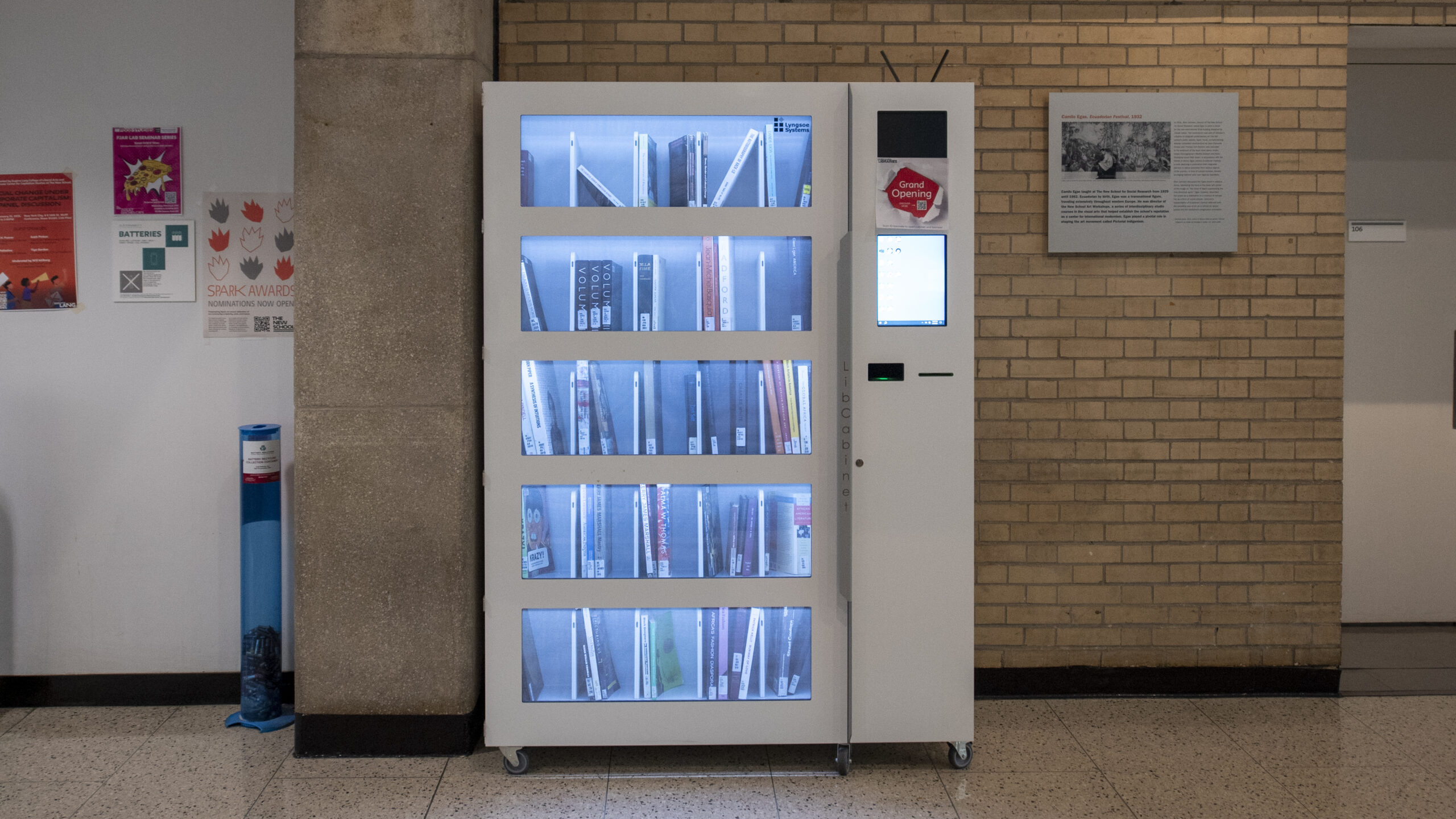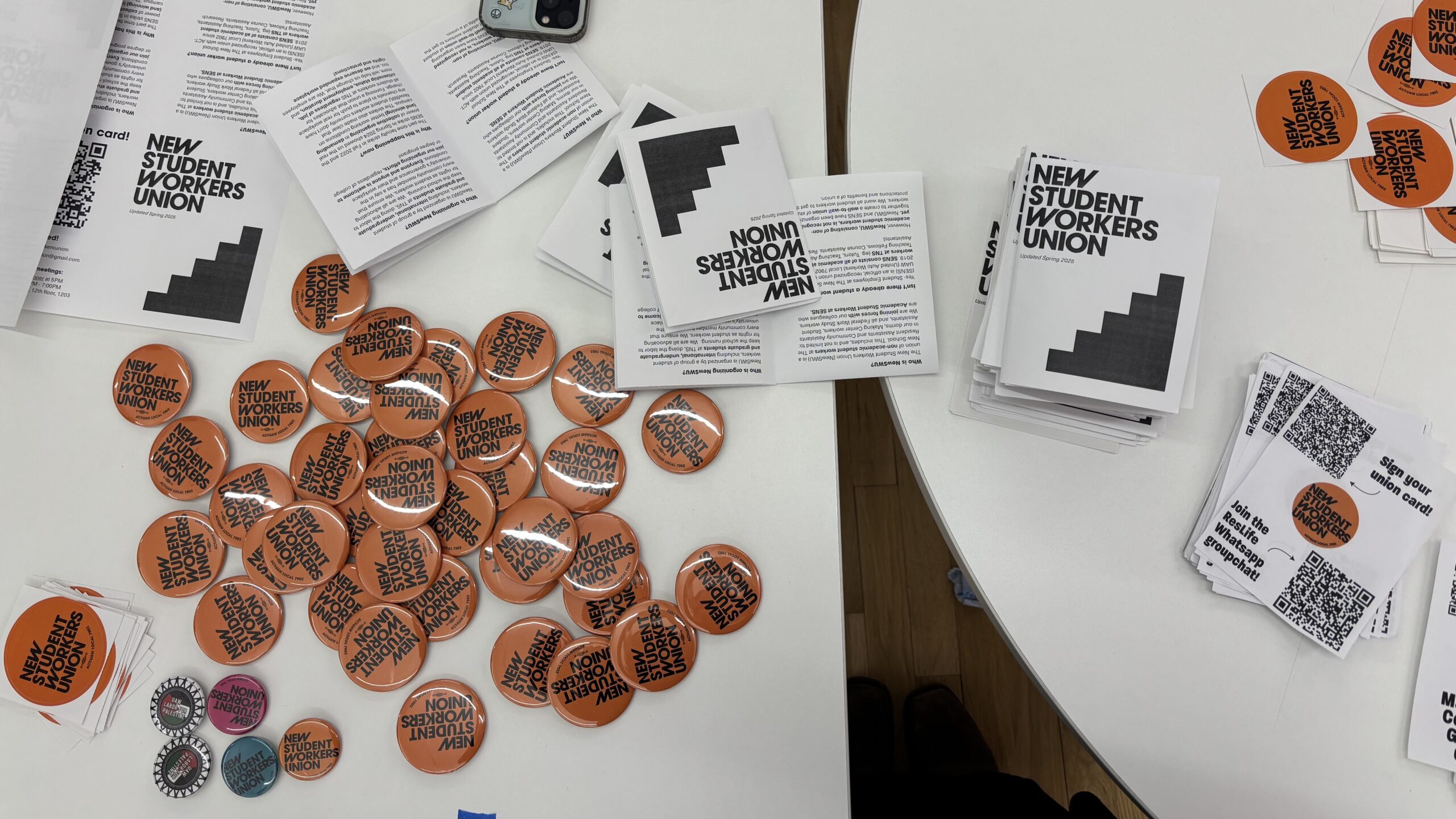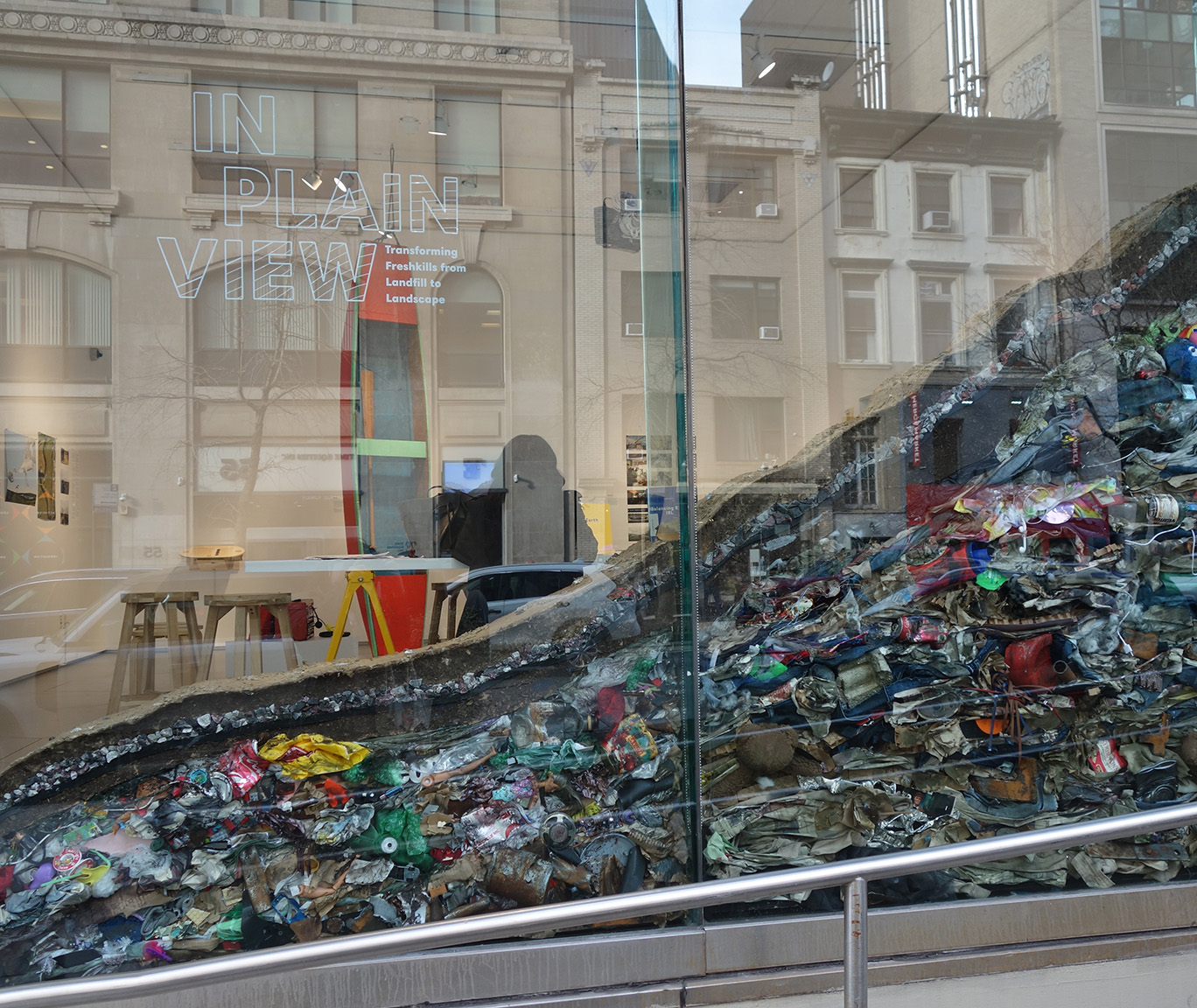The New School added two new library systems around campus as a way to promote physical learning and add books to spaces that do not have an established library. Students coming back to campus for the 2025 spring semester noticed the new additions in both the Student Hub at 39 W 13th St. and Johnson Hall at 66 W 12th St.
The additions are large rectangular boxes with shelves stocked full of books in a way that almost resembles a vending machine.
“I thought it was one of those COVID mask vending machines you used to see around,” said Jake Wasiliev, a second-year student at Eugene Lang College of Liberal Arts. Like other students who noticed the machines when school started, it took Wasiliev sometime before he realized what they actually do.
These appliances are not technically vending machines. Instead, they are called LibCabinets, created by the Danish company Lyngsoe Systems. They function as 24-hour self-serve library book lending machines and allow students to check out and return physical books away from the main libraries on campus.
“It was a way to provide access to resources in places where we don’t have physical locations already,” said Kira Appel, the Director of Research and Instructional Services at The New School.
The LibCabinets were placed at these locations because there isn’t a library to serve these buildings around campus, according to Appel.
The project was sponsored by Appel, who worked alongside nine other New School employees who served as a team of managers for the proposal. As stated in a 2024 plan compiled by Appel, some of the main goals of the project were to increase the potential for engagement with physical materials, raise the profile of underrepresented voices, promote faculty publications, and define a workflow for integrating new physical materials into the collection.
The total cost of these machines according to the original plan is $40,000 per unit, totaling $80,000 for the machines along with an additional $8,000 for the current collection of books in the machines and an estimated $20,000 for future additions. This figure includes the cost of the machine along with a warranty for the result of damages and five years worth of maintenance, according to the 2024 plan.
The cost of these machines was covered by capital expense funding, which is the money set aside by the New School for upgrade, acquisition, and maintenance costs that are meant to benefit the school.
“I think that we already have libraries all over campus so I don’t think the vending machine is useful or necessary. I also think that the money could be used for better purposes,” said Lucia Del Torto, a second-year student at Lang.
Similar to Del Torto, Wasiliev also believed that the money spent on these machines could’ve been used for something else. “I mean, if they singled out one student, the cost of these could probably pay for a year of their tuition,” Wasiliev said. For him to use the machines, they would need to contain his required course readings.
Despite differing opinions about the necessity of the machines, members of The New School LibCabinets team like, Stephen Serwin, the Executive Secretary for Libraries, Collections, and Academic Services, are waiting for students to test them out. They intend to collect data from the initial opening and make adjustments based on their findings as the semester progresses.
“I really want people to engage,” said Serwin. “I believe that we’re here for students.”








Leave a Reply